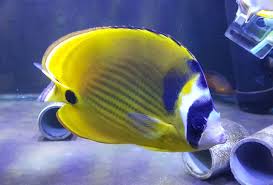
In recent years, scientific interest in the relationship between flowers and their impact on human health and the environment has grown significantly. Emerging research suggests that flowers offer numerous benefits, not only in terms of aesthetic enjoyment but also in promoting well-being and sustainability. Understanding the findings of these studies sheds light on the potential of flowers to positively influence both human health and environmental quality.
**Flowers and Human Health:**
1. **Psychological Well-being:** Studies have shown that exposure to flowers can have a positive effect on psychological well-being, reducing stress, anxiety, and depression. The presence of flowers in indoor and outdoor spaces has been linked to improved mood, increased relaxation, and enhanced overall happiness.
2. **Cognitive Function:** Research indicates that flowers may enhance cognitive function and productivity. The presence of flowers in work or study environments has been associated with improved concentration, creativity, and problem-solving abilities, leading to better task performance and decision-making.
3. **Physical Health:** Some studies suggest that flowers may have physiological effects on human health, including reducing blood pressure, heart rate, and pain perception. The sight and fragrance of flowers have been shown to induce relaxation responses, promoting physiological balance and stress reduction.
4. **Therapeutic Applications:** Flowers are increasingly being used in therapeutic settings, such as hospitals, nursing homes, and rehabilitation centers. Floral arrangements, gardening activities, and nature-based therapies involving flowers have been shown to have therapeutic benefits for patients, improving recovery rates, mood, and quality of life.
**Flowers and Environmental Impact:**
1. **Pollinator Conservation:** Scientific research highlights the critical role of flowers in supporting pollinator populations and biodiversity. By providing essential food sources and habitats for pollinators, flowers contribute to the conservation of bees, butterflies, birds, and other pollinating species, which are essential for ecosystem health and food security.
2. **Ecosystem Services:** Flowers provide a wide range of ecosystem services that benefit the environment and human well-being. These include soil stabilization, nutrient cycling, water purification, and carbon sequestration, which contribute to the resilience and sustainability of natural ecosystems and agricultural landscapes.
3. **Climate Resilience:** Recent studies suggest that floral diversity plays a crucial role in enhancing ecosystem resilience to climate change. Diverse floral communities are more resilient to environmental stressors such as drought, heatwaves, and extreme weather events, helping ecosystems adapt and thrive in changing climatic conditions.
4. **Urban Greening:** Research on urban greening initiatives highlights the importance of flowers in enhancing urban environments and mitigating the impacts of urbanization. Green spaces with diverse floral plantings improve air quality, reduce urban heat island effects, and provide habitat corridors for wildlife, creating healthier and more livable cities.
**Future Directions:**
As scientific research on the impact of flowers continues to evolve, there are promising avenues for further exploration and application. Future studies may focus on elucidating the mechanisms underlying the therapeutic effects of flowers on human health, as well as their role in supporting ecosystem resilience and adaptation to environmental change. Additionally, interdisciplinary research collaborations between scientists, horticulturalists, health professionals, and environmental experts can help translate scientific findings into practical applications and policy recommendations for promoting the well-being of both people and the planet.
**Conclusion:**
In conclusion, emerging scientific research underscores the multifaceted benefits of flowers for human health and the environment. From promoting psychological well-being and cognitive function to supporting pollinator conservation and climate resilience, flowers play a vital role in shaping a healthier and more sustainable world. By harnessing the insights gained from scientific studies, we can leverage the power of flowers to improve human well-being, protect biodiversity, and foster ecological harmony for generations to come.










